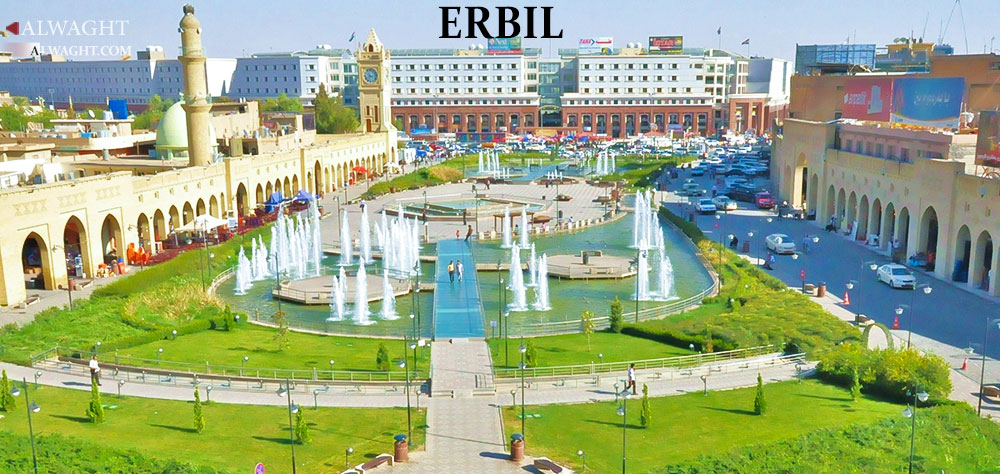Alwaght- The economic crisis touches its climax in Iraq’s Kurdistan region where almost two years ago people were boastful for their region’s high economic growth rate. However, the Kurdish region is nowadays dealing with an economic difficulty which could any time lead to its collapse. In a new development, the range of the striking public sector employees in Sulaymaniyah has expanded to now include the traffic police officers who are going on a strike because of several months delay in their pays. In Erbil, the capital of the region, the doctors have threatened that they would take the same step, asserting that should their demands are ignored by the regional government and their salaries are not paid by the administration, they would widen the range of their strike.
According to al-Arab newspaper, published from London, this strike crisis is hitting the Kurdish region while it is living a tough economic conditions due to the falling oil prices. Meanwhile, Masoud Barzani, whose presidency over the region has expired, is intending to hold an unbinding referendum to see if the people in the region would favor independence, a move believed by many experts to be arranged in this timeframe to divert the public opinions from the serious financial crisis from which the Kurdish region is suffering. Once the people of the region vote yes to independence bid from mainland Iraq, they would lose an over 17 percent share from Iraq’s total yearly budget, as tensions could potentially escalate between the central government in Baghdad and Erbil. At the same time, the food products, which are generally exported from Southern Iraq to Kurdistan, could cease flowing into the crisis-hit region. Some sources suggest that Iraq’s Kurdistan has strategic food reserves enough only for two to three months.
The first group of strikers were the city of Sulaymaniyah’s teachers whose salaries have not been paid since September 2015. It has been two weeks that they have not attended their workplaces and the classrooms.
“Those who have gone on strike are demanding that their salary problems be settled”, said Karwan Mohammad Sadiq, the spokesman for Sulaymaniyah traffic police, commenting on the strike situation in the Kurdish region.
The plummeting oil prices have made Iraq’s Kurdistan immerse in a terrible economic crisis, leaving the government not even able to pay the monthly salaries of the state employees, including the public service workers. Last week, the regional government has announced that due to its suffering from the extreme economic crisis, it could pay only a small portion of the salaries of its employees.
Some volunteers have undertaken the traffic regulation and management as the traffic police officers have come out on strike.
In Erbil city, the doctors have sent a protest letter to the council of ministers and the health ministry, asking that their salaries, just like those of the security forces and the Peshmerga fighters, be completely paid. They warned that should the government is not responsive to their demands, they would announce a nation-wide strike.
The Kurds are exporting oil through Turkey’s Ceyhan port city from oilfields of Kirkuk, which was seized by the Peshmerga forces last year, and other oilfields inside Kurdistan region independently and without a permission from the Iraqi central government. The regional government, despite agreements reached with Baghdad, is paying no share to the central government from the income of the exported oil. Furthermore, the government is not informed of any actions of Kurdistan oil exporting processes and mechanisms. The Kurdish regional government is supporting companies affiliated with it for sale of the oil. This is coming while oil prices have hit a 12-year record low, touching nearly only $20 per barrel.
The analysts believe that the economic crisis that is threatening the region is not only because of the falling oil prices. A great part of the threat is posed by the corruption as well as the oil incomes seizure by powerful families and the tribes holding the government, especially the members of Kurdistan Democratic Party led by Masoud Barzani and those who are linked to him. Additionally, a large portion of the money is paid to the endorsers of expansion of Barzani’s term of the presidency over the region. Barzani’s presidency of Kurdistan ended in August 2015. Also, a great amount of the petrodollars is paid to the Peshmerga forces which are currently a serious and active side of anti-ISIS battle.
Farough Yusef, the Iraqi columnist, has said that the protests in Iraq’s Kurdistan region have reached their explosive stage and if the corruption is not stemmed, the regional authorities would be left with no way to steer clear of such an explosion.



























